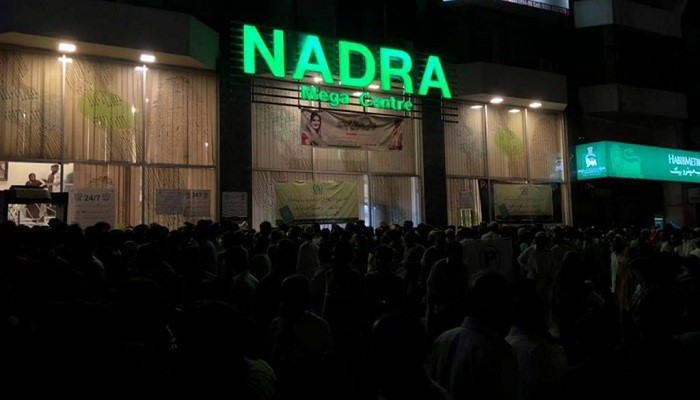Nadra says it has to raise ID card fee to expand network of facilities
Long queues persist for CNIC services as registration body limits opening new offices
ISLAMABAD: The National Database and Registration Authority (Nadra) has said that expanding its network of offices would necessitate an increase in identity card fee, Geo News reported.
Despite the opening of additional offices, hours-long wait times persist for those seeking to update or renew their computerised national identity cards (CNICs), indicating that the expansion has not fully resolved the issue.
Nadra Chairman Lieutenant General Muhammad Munir Afsar said that "61 tehsils do not have Nadra offices in Khyber Pakhtunkhwa (KP) and Balochistan".
His statements came during the National Assembly Standing Committee on Interior, which met under the chairmanship of Raja Khurram Nawaz to discuss pressing issues surrounding the authority on Monday.
The meeting saw a debate over Nadra's inability to expand its offices, concerns over fee hikes for CNICs, and challenges in ensuring security and efficiency within the system.
The Nadra chief briefed the committee, highlighting that expanding the agency’s offices would require increasing CNIC fees, due to funding constraints.
Afsar clarified that the organisation has its own funds and has not recently increased fees or conducted widespread CNIC renewals.
“We cannot expand Nadra offices without adjusting fees,” he explained, adding that the fee structure has not changed since former prime minister Yousaf Raza Gilani made the first CNICs free by executive order.
In response, the committee chairman responded critically, expressing concerns over the affordability of ID cards for many Pakistanis and urging the agency to consider other funding options.
Some committee members expressed frustration, noting that newly formed districts like Murree and Talagang still lack Nadra facilities.
Amid concerns about accessibility, Dr Tariq Fazal Chaudhary suggested making the first CNIC free, stating that this would help citizens obtain their essential ID without financial burden.
However, Nadra officials clarified that they rely on revenue from CNIC renewals and new applications to generate funds.
The committee also discussed security issues, with several members raising concerns about fraudulent ID cards. Dr Chaudhary noted that many Afghans possess fake CNICs.
Lt Gen Afsar explained that the agency monitors three to four hundred individuals daily to detect data leaks and unauthorised CNIC issuances.
Committee member Agha Rafiullah voiced frustration over unresolved issues faced by the Bihari community.
Rafiullah reminded the committee of past commitments, stating: “I had said that no government bill will be passed until the Bihari issue is resolved.”
His comments drew support from Dr Chaudhary, who reiterated his commitment to resolving the matter.
The reappointment of Munib Cheema, a former official removed over data leaks, was questioned by committee member Nabeel Gabol, who demanded more stringent controls within Nadra.
-
Security forces gun down 30 terrorists in multiple IBOs in KP: ISPR
-
MQM-P calls for new province in Sindh
-
US report validates Pakistan military edge over India: PM
-
Banned TTP poses serious threat to Pakistan security: UNSC panel
-
CM Afridi clarifies remarks on by-poll after ECP requests army deployment
-
Dubai sees 3.2m Pakistani passengers in 2025 as airport sets new milestone
-
Security forces kill 23 Indian proxy terrorists in KP's Kurram
-
Pakistan to construct island to boost oil exploration: report












